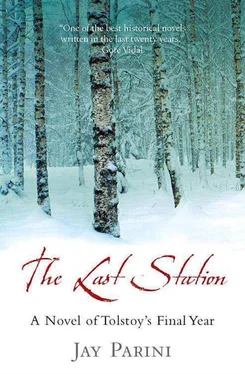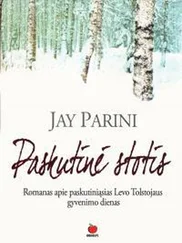He swore he’d go, and I felt he was in earnest and meant to appear.
The next day I joined my friends, Peter and Simon, and asked if the man had turned up. He had not. As it happened, several other men behaved in much the same way. I was also cheated by men who said they only needed money to buy a railway ticket home, but whom I met on the street again a week later. Several of these I recognized, and they recognized me; but sometimes, having forgotten me, they told me the same story again. Some turned away on seeing me. So I learned that among this class there are many cheats, too; but I felt extremely sorry for these cheats. They were a half-dressed, thin, impoverished, sickly group: the sort of people who often freeze to death or hang themselves, as we often read in the papers.
When I spoke to the Moscovites about this destitution in their city I was usually told: ‘What you have seen is nothing! Go to Hitrof Market and visit the doss houses. That’s where you’ll see the real “Golden Company.”’ One fellow told me, somewhat dryly, that it was no longer a ‘Company’ but a ‘Golden Regiment’ – there are so many of them. The man was right, but he’d have been even more correct had he said that in Moscow these people are now neither a company nor a regiment but a vast army that numbers, I am told, fifty thousand. Old residents of Moscow, when speaking of town poverty, always spoke of it with a kind of pleasure – as if proud to know about it. I recall, too, that when I was in London, people there bragged about London pauperism: ‘Just look what it’s like here!’ they said.
I wanted to see this destitution, about which I’d been told; and several times I set out toward Hitrof Market, but each time I felt uncomfortable and ashamed. ‘Why go to look on the sufferings of people I can’t help?’ a voice within me said. ‘If you live here and see all the allurements of town life, go and see that, too,’ said another voice. And so, one frosty, windswept day in December 1881, I went to the heart of the town’s destitution – Hitrof Market. It was a weekday, almost four o’clock in the afternoon. In Solyanka Street I had already become aware of more and more people wearing strange clothes not made for them, and in yet stranger footgear – people with an odd, unhealthy complexion, all possessing a common air, an air of indifference. I noticed one man walking alone rather casually, dressed in strange, incredible clothes, evidently unfazed by what he looked like to others. All proceeded in the same direction. Without asking the way (which I didn’t know), I went with them, arriving eventually at the Hitrof Market.
There were also women of the same type, adorned in all sorts of capes, cloaks, jackets, boots, and galoshes, equally indifferent to appearances in spite of the hideousness of their garb. Old and young, they sat exchanging goods of some sort, milling about, swearing and scolding. There were few people in the market. It was apparently over, and most were walking uphill, passing through or past the market, always in one direction. I followed them, and the farther I went the more people there seemed to be, all going one way. Passing the market and following up the street, I overtook two women: one old, the other young. Both wore tattered, drab clothes. Neither was drunk. Something, however, preoccupied them, and the men who met them, as well as those behind and before them, paid no attention to their manner of speech, which to my ears was peculiar. It was evident that, here, people always talked like this.
To the left were private doss houses, and some turned into them, while others went farther on. Having climbed the hill, we came to a large house on the corner. Most of those among whom I had been walking stopped here. All along the sidewalk and in the snow-covered street, people of the same type stood or sat. To the right of the entrance door were the women, to the left the men. I passed both the women and the men (there were hundreds of them), and stopped where the line ended. The house they were waiting for was the Lyapinsky Free Night-Lodging House. The crowd were lodgers waiting for admission. At 5:00 p.m. the doors open, and people are let in. Nearly all those I had overtaken were coming here.
When I stopped, where the lines of men ended, those nearest began to stare at me, drawing me to them by their glances. The tatters covering their bodies were extremely varied, but they all looked at me with the same stare, as if to say: ‘Why have you, a man from a different world, stopped among us? Who are you? A self-satisfied rich man who wants to enjoy our misery, to kill time, to torture us – or are you that thing which can hardly exist – someone who pities us?’ These questions hung on every face. They looked, caught my eye, and turned away. I wanted to speak to some of them but could not decide what to do. Nevertheless, as widely as life had separated us, having exchanged glances I felt that we were similar, that we ceased to be afraid of one another.
Near me stood a fellow with a swollen face and a red beard, in a torn coat with worn galoshes on his bare feet. (And it was well below freezing!) I met his look three or four times, and felt so near him that instead of being ashamed to speak to him, I should have been ashamed not to say something. So I asked where he came from. He answered readily and began talking, while others drew near. He was from Smolensk and had come to seek work, hoping to be able to buy corn and pay his taxes. ‘There is no work to be had,’ he said. ‘The soldiers have taken all the work. So I’m wandering about, and, as God knows, I haven’t eaten for two days!’ He spoke timidly, trying to smile. A seller of hot drinks (made of honey and spices) stood nearby. I called him, and he poured out a glass. The man took the drink in his hands and tried to contain the heat as he cupped his hands around the glass. While doing so, he told me about his adventures (the adventures or stories told by these men were almost all the same). He had had a little work, but it came to an end; then his purse, with his passport and what money he had, had been stolen, right here in the Lyapinsky House. Now he couldn’t get away from Moscow. He said that during the day he warmed himself in the drink shops and ate scraps of bread, which were sometimes given to him; but often they drove him away. He got his night’s lodging free here. He was now only waiting for the police to arrest him for having no passport, to imprison him or send him on foot, under escort, back to his native town. ‘They say there will be a police search on Thursday,’ he said. Prison or escort home were, for him, the Promised Land.
As he was talking, two or three others from among the crowd confirmed his words and said they were in the same mess. A skinny kid, pale, long nosed, with nothing over his shirt (which had a tear at the shoulder) and wearing a peakless cap, pushed his way sidelong to me through the crowd. He shivered violently all over, but he tried to smile contemptuously at the beggar’s speech, hoping thereby to adapt himself to my attitude. He looked me in the eye, and I offered him, too, a hot drink. On taking the glass he also warmed both hands around it, but he had only begun to speak when he was pushed aside by a big, black, Roman-nosed fellow in a print shirt and a vest but wearing no cap. The Roman-nosed man also asked for a hot drink, followed by a tall, drunken old man with a pointed beard who wore an overcoat tied around the waist with a cord and bast shoes. Then came along a dwarfish fellow with puffy cheeks and watery eyes who wore a brown nankeen pea jacket; his bare knees poked through the holes in his summer trousers and knocked together from the cold. He shivered so badly he could hardly hold the glass and spilled the contents all over himself. The rest began to abuse him, but he only smiled rather pitifully and shivered. Then came a crooked, deformed man in rags, with strips of linen tied round his bare feet; then something that looked like an officer, then something that looked like a cleric, then something strange and noseless: all were hungry, freezing, importunate, and submissive, drawing round me and pressing near the seller of hot drinks, who dispatched what he had till all was gone.
Читать дальше












